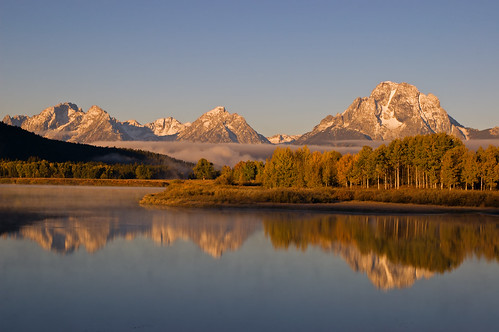



I spent a lot of time when I was younger, in college, thinking about environmental economics and ethics, something I've strayed from in the past few years, both professionally and personally. Although I did live in an all-vegetarian cooperative house called Synergy for six months (we snuck burritos into the basement and gorged), my interest in the environment was not as a hippie or mountain-man, but rather, driven by two convictions and one big concern.
I was (and still am) convinced that the consumerist, materialist focus of society in America was disconnecting people from their physical environments -- as strip malls, subdivisions, and highways dominate the physical landscape, and the office, television, and commuting occupy people's time, Americans (including myself) are losing touch with the rhythms and textures of the natural world.
Secondly, having spent a lot of time in my youth traveling to India and other developing countries, I've always had a strong sense of the inequality between the material excess in which we indulge in America, in our houses, our cars, and the things we buy, and the proximity to abject poverty in which so much of the world lives. And even more concerning was a realization that most of the world wouldn't live that way forever -- that as countries developed, like in India and China today, the standards of consumption among some segments of the population would increase, striving to reach parity with the West. Could this possibly be sustainable?
Finally, a concern, well-founded but uncertain, was the question of sustainability itself. For years, natural scientists and economists, from Malthus at the end of the 18th century to the Ehrlichs in the 1970s have been sounding the alarm over a global environmental catastrophe. While we have managed to avoid such a catastrophe to date, perhaps by underestimating nature's resiliency or humanity's ingenuity, it is doubtful that we are in the clear. Global warming, increasing rates of extinction, depleted fisheries, massively changing global land use profiles all cause concern.
With this having drifted to the top of my mind, I figured I'd post a few interesting links focused on making more responsible environmental choices. As an additional note, all of the photos posted above were cribbed from Flickr.
I was (and still am) convinced that the consumerist, materialist focus of society in America was disconnecting people from their physical environments -- as strip malls, subdivisions, and highways dominate the physical landscape, and the office, television, and commuting occupy people's time, Americans (including myself) are losing touch with the rhythms and textures of the natural world.
Secondly, having spent a lot of time in my youth traveling to India and other developing countries, I've always had a strong sense of the inequality between the material excess in which we indulge in America, in our houses, our cars, and the things we buy, and the proximity to abject poverty in which so much of the world lives. And even more concerning was a realization that most of the world wouldn't live that way forever -- that as countries developed, like in India and China today, the standards of consumption among some segments of the population would increase, striving to reach parity with the West. Could this possibly be sustainable?
Finally, a concern, well-founded but uncertain, was the question of sustainability itself. For years, natural scientists and economists, from Malthus at the end of the 18th century to the Ehrlichs in the 1970s have been sounding the alarm over a global environmental catastrophe. While we have managed to avoid such a catastrophe to date, perhaps by underestimating nature's resiliency or humanity's ingenuity, it is doubtful that we are in the clear. Global warming, increasing rates of extinction, depleted fisheries, massively changing global land use profiles all cause concern.
With this having drifted to the top of my mind, I figured I'd post a few interesting links focused on making more responsible environmental choices. As an additional note, all of the photos posted above were cribbed from Flickr.
- A little post I wrote about Ecological Footprinting, over on the other site.
- No Impact Man, a NYC-based writer who is trying to spend a year creating no resource impact through his lifestyle (and, admittedly, a shameless, if well-intentioned publicity stunt)
- National Resource Defense Council's website on Green Living.
- And a quick link to David Byrne's journal, which includes a quote from Einstein, relevant to this peculiar mystery:
"If the bee disappeared off the surface of the globe then man would only have four years of life left. No more bees, no more pollination, no more plants, no more animals, no more man." - Einstein
No comments:
Post a Comment